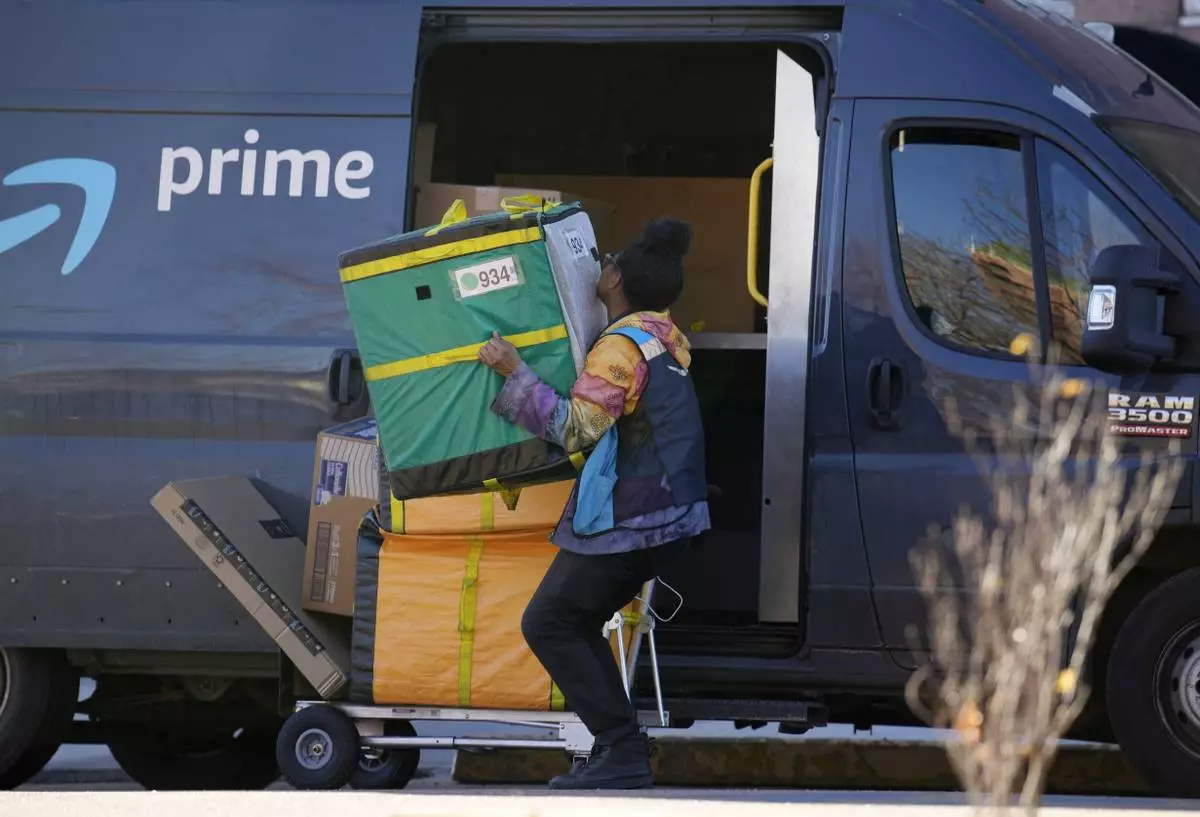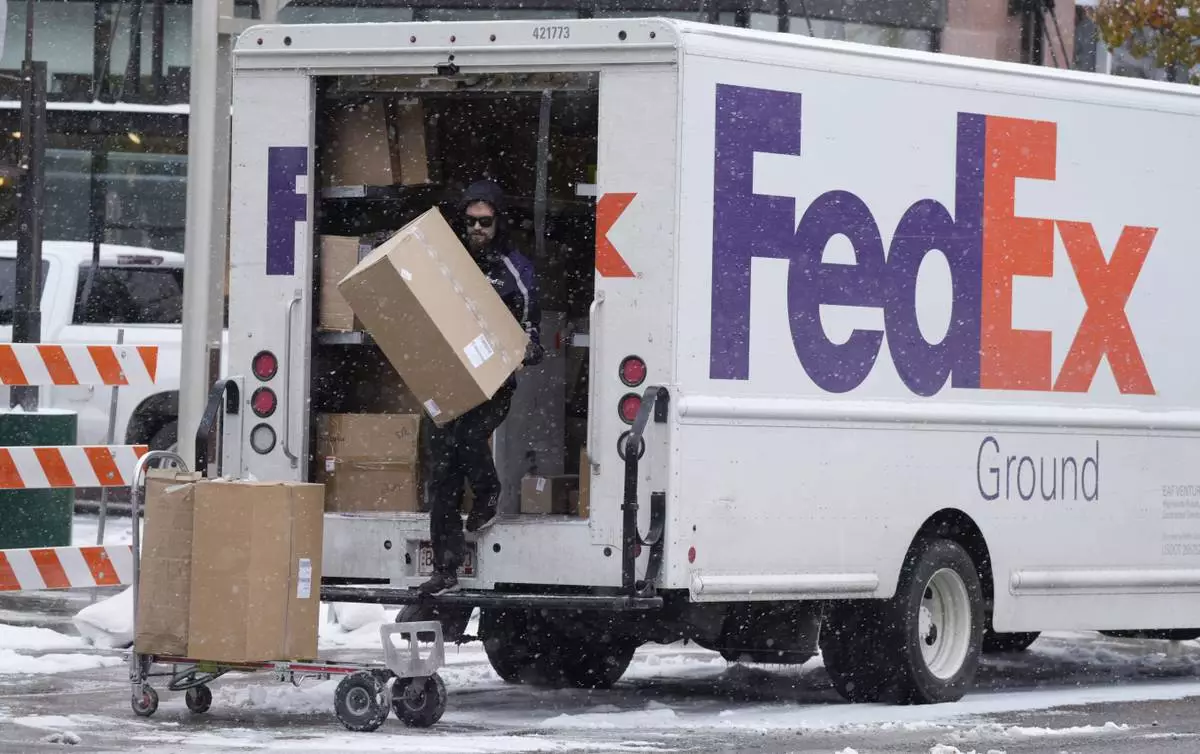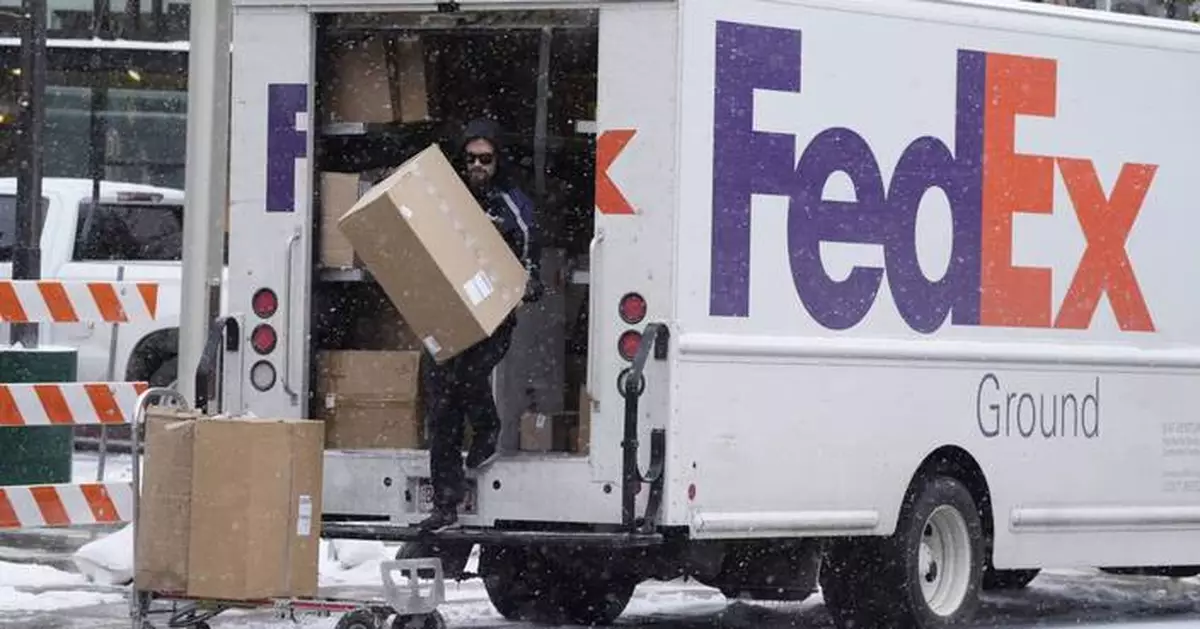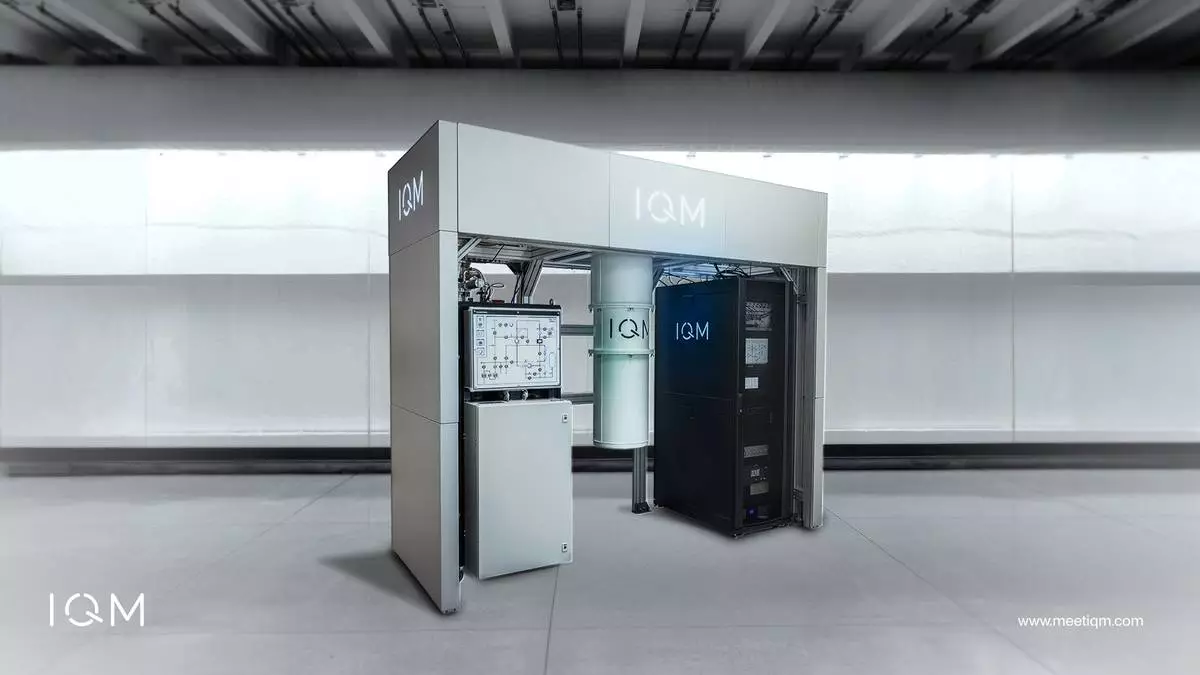Consumers in the United States are scouring the internet for online deals as they look to take advantage of the post-Thanksgiving shopping marathon with Cyber Monday.
Even though e-commerce is now part and parcel of many people's regular routines and the holiday shopping season, Cyber Monday — a term coined in 2005 by the National Retail Federation — has become the biggest online shopping day of the year, thanks to the deals and the hype the industry has created to fuel it.
Adobe Analytics, which tracks online shopping, expects consumers to spend a record $13.2 billion on Monday, 6.1% more than last year. That would make it the season's — and the year's — biggest — shopping day for e-commerce.
For several major retailers, a Cyber Monday sale is a days-long event that began over the Thanksgiving weekend. Amazon kicked off its sales event right after midnight Pacific time on Saturday. Target's two days of discount offers on its website and app began overnight Sunday. Walmart rolled out its Cyber Monday offers for Walmart+ members on Sunday afternoon and opened it up to all customers three hours later, at 8 p.m. Eastern time.
Consumer spending for Cyber Week — the five major shopping days between Thanksgiving and Cyber Monday — provides a strong indication of how much shoppers are willing to spend for the holidays.
Many U.S. consumers continue to experience sticker shock following the period of post-pandemic inflation that left prices for many goods and services higher than they were three years ago. But retail sales nonetheless have remained strong, and the economy has kept growing at a healthy pace.
At the same time, credit card debt and delinquencies have been rising. More shoppers than ever are also on track to use “buy now, pay later” plans this holiday season, which allows them to delay payments on holiday decor, gifts and other items.
Many economist have also warned that President-elect Donald Trump's plan to impose tariffs next year on foreign goods coming into the United States would lead to higher prices on everything from food to clothing to automobiles.
The National Retail Federation expects holiday shoppers to spend more this year both in stores and online than last year. But the pace of spending growth will slow slightly, the trade group said, growing 2.5% to 3.5% — compared to 3.9% in 2023.
A clear sense of consumer spending patterns during the holiday season won’t emerge until the government releases sales data for the period, though preliminary data from other sources shows some encouraging signs for retailers.
U.S. shoppers spent $10.8 billion online on Black Friday, a 10.2% increase over last year, according to Adobe Analytics. That's also more than double what consumers spent in 2017, when Black Friday pulled in roughly $5 billion in online sales. Consumers also spent a record $6.1 billion online on Thanksgiving Day, Adobe said.
Software company Salesforce, which also tracks online shopping, estimated that Black Friday online sales totaled $17.5 billion in the U.S. and $74.4 billion globally.
E-commerce platform Shopify said its merchants raked in a record $5 billion in sales worldwide on Black Friday. At its peak, sales reached $4.6 million per minute — with top categories by volume including clothing, cosmetics and fitness products, according to the Canadian company.
Toys, electronics, home goods, self-care and beauty categories were among the key drivers of holiday spending on Thanksgiving and Black Friday, according to Adobe. “Hot products” included Lego sets, espresso machines, fitness trackers, makeup and skin care.
Other data showed physical stores saw fewer customers on Black Friday, underscoring how the huge crowds that were once synonymous with the day after Thanksgiving are now more than happy to shop from the comfort of their homes.
RetailNext, which measures real-time foot traffic in stores, reported that its early data showed store traffic on Friday was down 3.2% in the U.S. compared to last year, with the biggest dip happening in the Midwest.
Sensormatic Solutions, which also tracks store traffic, said its preliminary analysis showed retail store traffic on Black Friday was down 8.2% compared to 2023.
Grant Gustafson, head of retail consulting and analytics at Sensormatic Solutions, noted that in-store traffic was getting spread across multiple days since many retailers offered generous discounts before and after Black Friday,
“Some of the extended Black Friday promotions really ended up leading to a little bit of a softer day-of traffic than expected,” Gustafson said.
While physical items like toys and electronics are always popular around the holidays, experts note that consumers have turned to more “experience-driven spending” in recent years, especially as the COVID-19 pandemic waned.
Jie Zhang, a marketing professor at the University of Maryland’s Robert H. Smith School of Business, told The Associated Press ahead of the post-Thanksgiving shopping weekend that he expected shoppers to “indulge themselves a bit more” when it comes to self-gifting.
AP Business Writer Wyatte Grantham-Philips contributed to this report from New York.

FILE - A United Parcel Service driver sorts his deliveries, on New York's Upper West Side, on July 15, 2023. (AP Photo/Richard Drew, File)

FILE - An Amazon Prime delivery person lifts packages while making a stop on Nov. 28, 2023, in Denver. (AP Photo/David Zalubowski, File)

FILE - A FedEx delivery person carries a package from a truck on Nov. 17, 2022, in Denver. (AP Photo/David Zalubowski, File)










